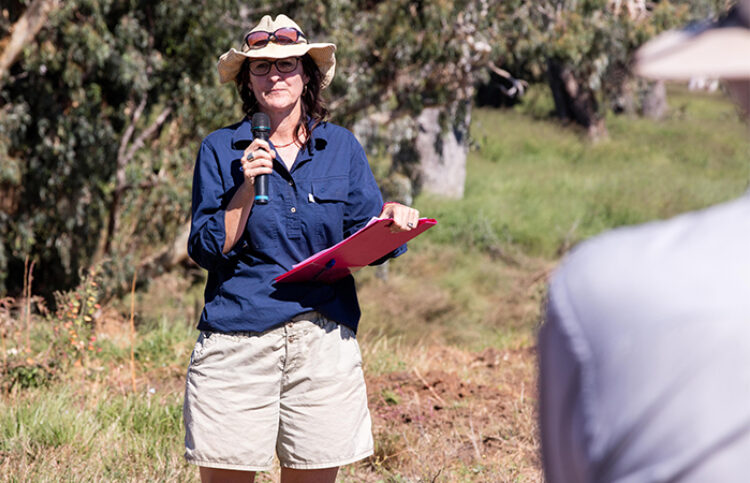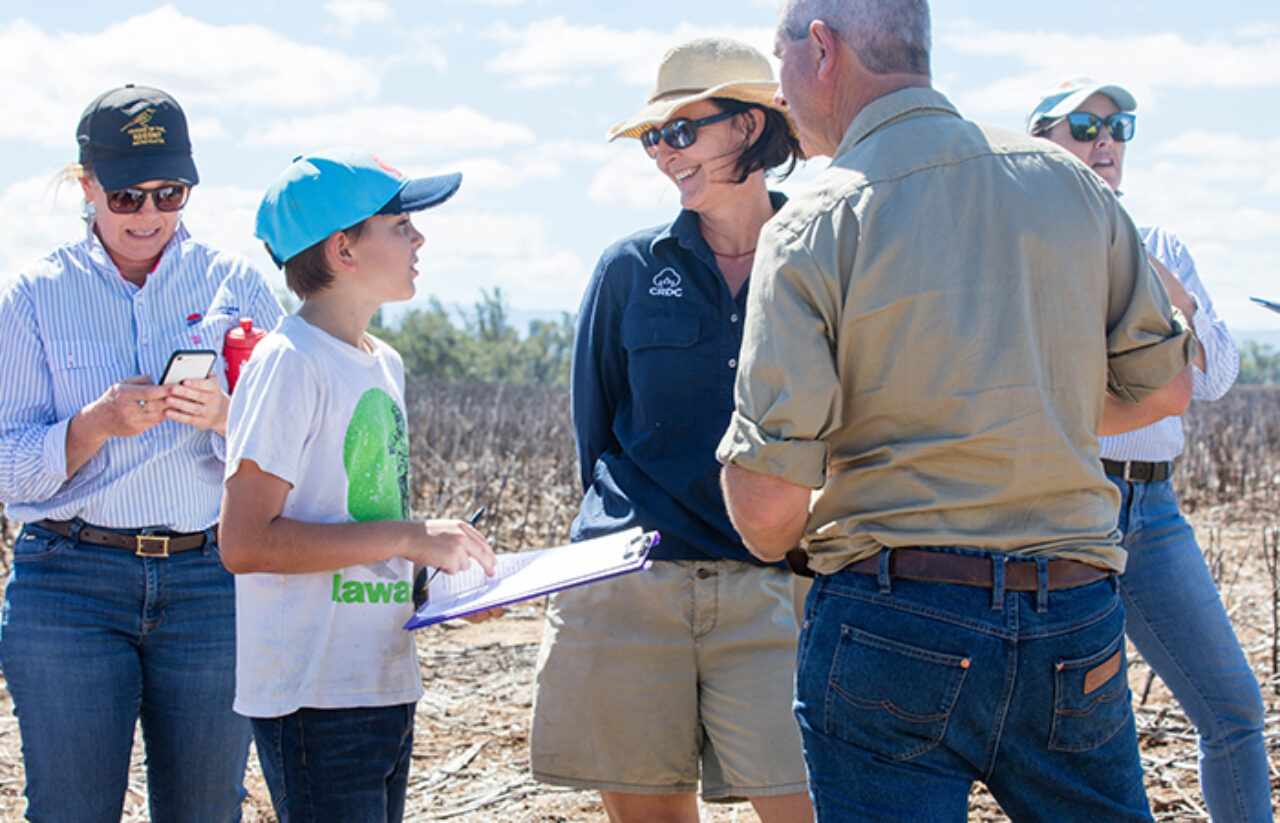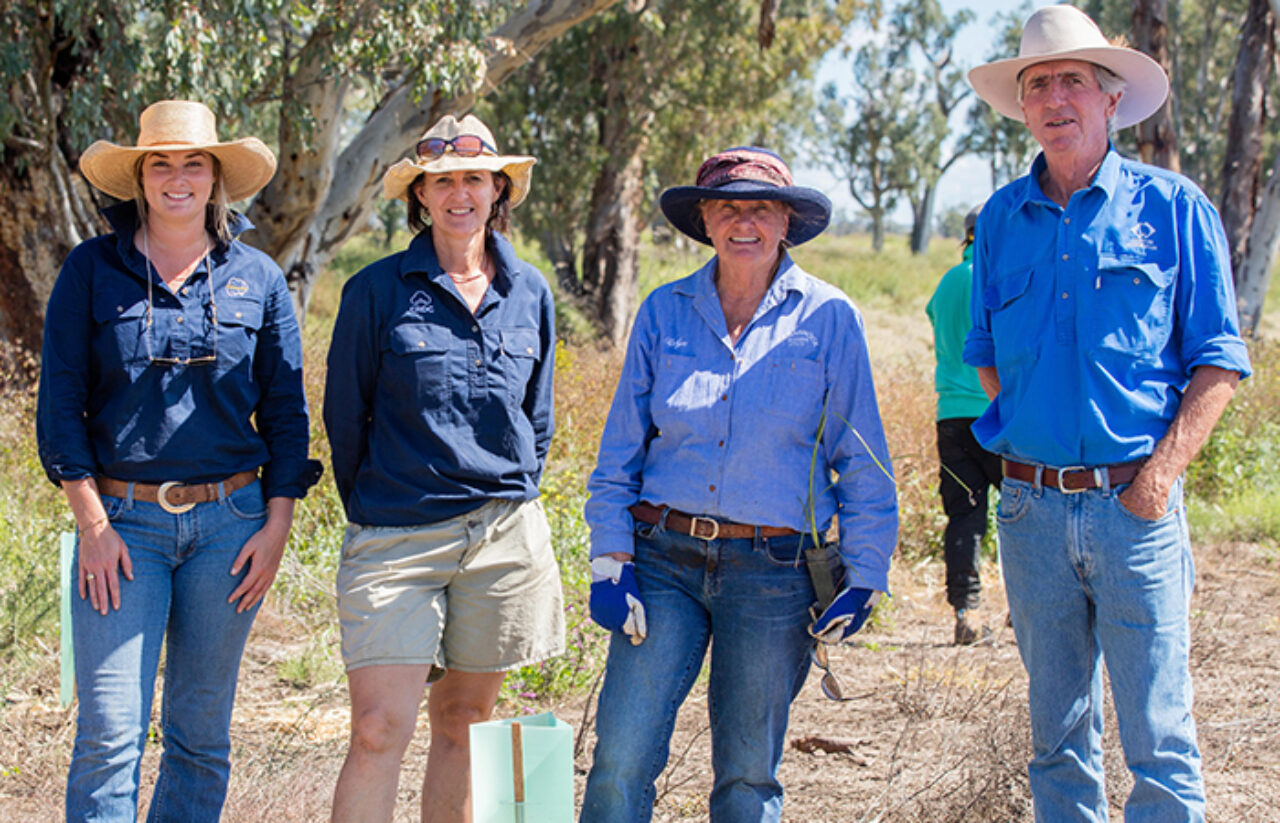
One farmer planting a few trees won’t have a huge impact on improving biodiversity – but when a fashion brand, a not-for-profit group and an environmental scientist join the team, everything changes.
A new approach in the Namoi Valley has created a pathway to improving biodiversity along the Namoi River in what environmental scientist Stacey Vogel calls a “truly unique” collaboration.
Stacey, who works as a biodiversity specialist for the Cotton Research and Development Corporation (CRDC) and CottonInfo, provided the scientific foundation for The Biodiversity Project, which has already seen thousands of trees planted along the Namoi River.
Stacey and the team facilitated weed clearing, the planting of native vegetation, fencing and installation of stock watering points.
“Its great to see a fashion brand like Country Road actually wanting to help the farmers make these changes, particularly when they source cotton from Australia,” Stacey (pictured below, middle) said.

Having worked in the cotton industry for the past 20 years, most recently as a Research and Development Manager focusing on natural resource management (NRM) for CRDC, and an NRM technical lead for the cotton industry’s extension program CottonInfo, improving biodiversity in rural communities is Stacey’s passion.
It’s seeing a community rally together to make change, their resilience and strength that drives Stacey to help facilitate positive change in the cotton industry.
“I’m passionate about seeing rural communities remain resilient in the long term. We need healthy, natural and renewable resources to do that,” Stacey said.
“Most of the time, because the farmers are second, third generation and so-forth, their knowledge of the plants and animals on their farms is amazing, and they just need an enabler or supporter to get the project started, because it’s often a costly exercise.”
Having grown up on a cotton farm in Moree, NSW, Stacey has seen the industry from all aspects, but it wasn’t painted in the best light.
She completed her environmental science studies at the University of Canberra, where a friend shared a different perspective of the cotton industry that prompted Stacey to help from the inside.
“I thought I wasn’t going to make change bashing on the outside of the wall – I needed to be in there working alongside the farmers. What I found was they had the willingness to make change and just needed some extra support to get started,” she said.
“I joined the cotton industry 20 years ago and haven’t looked back – it’s a great industry to work with because everyone’s proactive, collaborative and willing to take a risk.”

Today in Stacey’s CottonInfo capacity, she works with growers to encourage the adoption and continuous improvement of the industry’s best practice recommendations for NRM, and with CRDC, she leads the industry’s biodiversity research and development portfolio.
The Country Road - Landcare Australia - cotton industry biodiversity project has also helped shine a light on today’s modern agriculture as well as help farmers and industry understand more about consumer thinking.
“I believe in the future we will see more partnerships like this, partnerships that bring farmers and consumers closer together,” Stacey said.
“Fashion labels are really putting a lot of time and focus on the importance of biodiversity, sustainability and traceability, factors that resonate with the customers buying cotton products.”
As for cotton farming biodiversity in the future, Stacey says research by CRDC that has identified priority areas and practices for restoring threatened and endangered species in cotton landscapes will underpin potential projects.
“Having research to guide where these works will have the greatest impact gives us confidence the projects will make the biggest difference,” Stacey said.
To find out more about the Country Road, Landcare and cotton industry Biodiversity Project, please click here.
